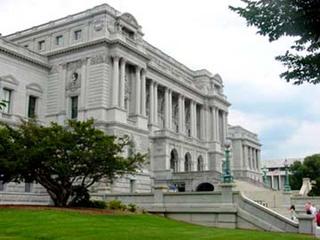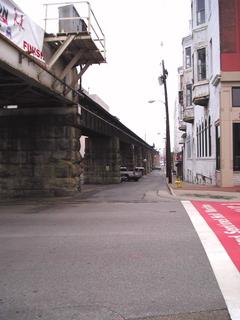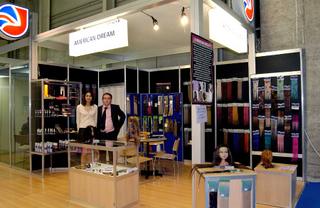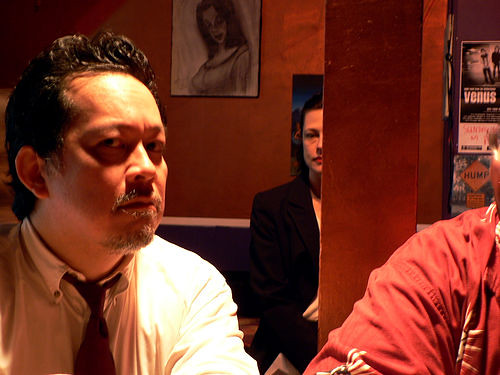
I came to the conclusion that my future in New York had been in Claudia Schiffer’s hands. Claudia—with her tiny, round eyes which always seemed to be staring at the ground on the day I spent with her—was my last chance in New York. If she’d given me a little bit of time I could have gotten myself started again, but my smell got in the way of commerce with her.
I walked all the way home from the Shandon Star, down to Avenue B and Third St. Before going up to my apartment I stopped at the Chinese carryout on the corner and got an order of sweet and sour pork. Opening the door to my building I saw my landlord.
“José Baby!” he yelled out. Jack always called me
Baby. He was in his mid-sixties, and with his full head of dyed black hair looked like someone who, if he were living in a small town, would be running the local bowling alley. Somewhere in the back of his mind he must have remembered that it was hip to call people
Baby. That, plus his inability to resist any opportunity to make a pun with my name put the words “José Baby” in the back of
my mind for the four years I’d been living in the building.
“Hey, Jack,” I answered quietly. I was hoping he wouldn’t bring up the subject of my late rent check. All Jack did was point to the bag in my hand.
“Chinks?” he asked. Maybe he thought he was being hip by using the word “Chinks” with me.
“Ah, yeah,” I said.
Jack nodded, saying, “Yeah, it’s good stuff, yeah!”
The next day I told Jack I was leaving, that I’d just leave him my security deposit in lieu of the back rent I owed. It was all right with him.
“José Baby,” he said, “if you come back to town, come see what I’ve got available.” Jack was sad to see me go, as was the old Puerto Rican lady who lived next door to me.
“You don’t know who move in now,” Anna Garcia said. “Too many
junkie people here.”
Being just a sullen drinker, I was civilized in Anna’s eyes. But the crackhead who lived down the hall and the people she’d sometimes see shooting up in the foyer were another matter. Of course, if I had the money, I would have stayed. And although the most I ever did for Anna was to help her carry her groceries up the three flights of stairs, I now felt obligated to help her out somehow.
“Someone nice will move in,” I reassured her. “Jack’s probably tired of those people who pay the rent in cash.”
Anna gave me a worried look. She didn’t understand what I meant.
“It’ll be all right,” was all I could say.
I packed my things into a U-Haul truck and drove down to Washington the next day. There I was, back in the house I grew up in, living with my parents and my younger brother, BB.
The traditional role of a good Filipino son was to live at home, helping out the family, until he got married—preferably to a nice Filipino girl. BB was following tradition, keeping a steady job at the Library of Congress as he helped my Mother and Father, who were both retired, with the bills. I strayed from that traditional role when I left the Library, left home and moved to New York. My older brother, Ray, had left home too and moved to Baltimore, but he’d gotten married. As for me, not only had I left home before getting married, but I was now back and had no money to speak of. Not that my parents weren’t glad to have me back in Washington, but somewhere in the back of their minds the term “fuck-up” must have seemed the most accurate way to describe me.
So I went out looking for work—not writing gigs, but straight jobs. I sent out resumés and those few times when I was actually called in for an interview I’d refrain from drinking the night before: I didn’t want the stench of bourbon to keep me from gaining entrance into the realm of the nine to five workday. But my one night stands of clean living didn’t help, because no matter how sharply I dressed, how charming I acted during interviews, I couldn’t get a job.
It would have been easier for me if I were white. Of course some people I knew from the time I worked on Capitol Hill were skeptical of this.
“It’s not because you’re Asian,” Joe Carone told me. Carone was my bartender friend at the Tune Inn two blocks down from the Library of Congress. “It’s because you’re a fuck-up.”
Carone was telling me this at a time when all the bartenders at the Tune Inn were alarmed that the grocery store next to the Tune Inn had been bought by a Korean family. Being just a fuck-up, I posed no threat. But a hard working Korean family, that was another matter.
“They’re taking over everything!” was Bob Dill’s response when he heard about the sale. Dill was another regular at the Tune. A mechanic, he was at the Tune everyday like me. And although I’d been drinking with him at the Tune for several years—sometimes at the barstool right next to his—we had never exchanged a single word.
Which was the way it was with some people—for them I just wasn’t there. And though before I’d gone to New York I kept quiet about these things whenever I drank on the Hill, I was no longer the mellow drunk I used to be.
“I don’t think you need to worry about the Koreans taking over your grease monkey gig,” I said to Bob Dill. “They wouldn’t want it.”
Bob Dill raised his chin and lowered his eyes at me. “Was I talking to you, asshole?” he yelled.
“Fuck you,” I snapped back. When I was drunk the sharp smartass comments didn’t always come that easily.
“You fucking gook!” he screamed as he shoved me off my bar stool.
I got back up and lunged at him.
Of course, everyone thought it was me who had started the fight—and I had—though it was Bob Dill who threw the first punch. Well, actually it
was me who threw the first actual punch, but I wouldn’t have raised my fist had Bob Dill not shoved me off my bar stool. Yet that was my first victory that night: getting someone like Bob Dill to recognize my existence. My second victory was when I broke his nose and knocked him out. It was just a lucky punch; and despite the running commentary from a drunken Senate staffer—who noted with sadness, “And the karate chop takes him down for the count!”—all I was doing was wildly throwing straight-ahead punches.
Although I was the victor, I was no hero in the eyes of the crowd which had suddenly turned silent. “It wasn’t fair,” I heard someone say, “he knows karate.”
I stood there for a moment, remembering the dedication in Hartzell Spence’s biography of Ferdinand Marcos,
For Every Tear A Victory:
TO
FERDINAND EDRALIN MARCOS
WHO: had he been born white-skinned on the American
mainland rather than brown-skinned in the
U.S.Philippines, would today be counted one
of America’s greatest heroes.
As ludicrous as the dedication may have seemed at first, it was nevertheless true. Marcos would have been a hero. And he could have gotten away with everything – with robbing his people and killing his rivals. His reign over the seven thousand plus islands of the Philippines would have been described as a story worthy of
Shakespeare with Marcos being remembered fondly as a tragic
hero.
I stood there for a moment over the unconscious, bloody-nosed head of Bob Dill. I stood there looking like the bad guy from some stupid parody of
West Side Story.
A few days after my first round TKO over Bob Dill I ran into Joe Carone on the street.
“They don’t want you coming in there anymore,” he said, shaking his head.
But I already knew.
 Jim Nabors first came to the public's attention on The Andy Griffith Show, playing the dim-witted character of "Gomer Pyle." Wearing overalls and a baseball cap—and speaking with a slow southern drawl—Gomer Pyle nonetheless surprised everyone with his booming operatic tenor. This was Nabors' real talent. Despite this great gift, Nabors insisted on pursuing his acting career rather than dedicating himself whole-heartedly to his music—thus, his starring role in Gomer Pyle, U.S.M.C.
Jim Nabors first came to the public's attention on The Andy Griffith Show, playing the dim-witted character of "Gomer Pyle." Wearing overalls and a baseball cap—and speaking with a slow southern drawl—Gomer Pyle nonetheless surprised everyone with his booming operatic tenor. This was Nabors' real talent. Despite this great gift, Nabors insisted on pursuing his acting career rather than dedicating himself whole-heartedly to his music—thus, his starring role in Gomer Pyle, U.S.M.C.


